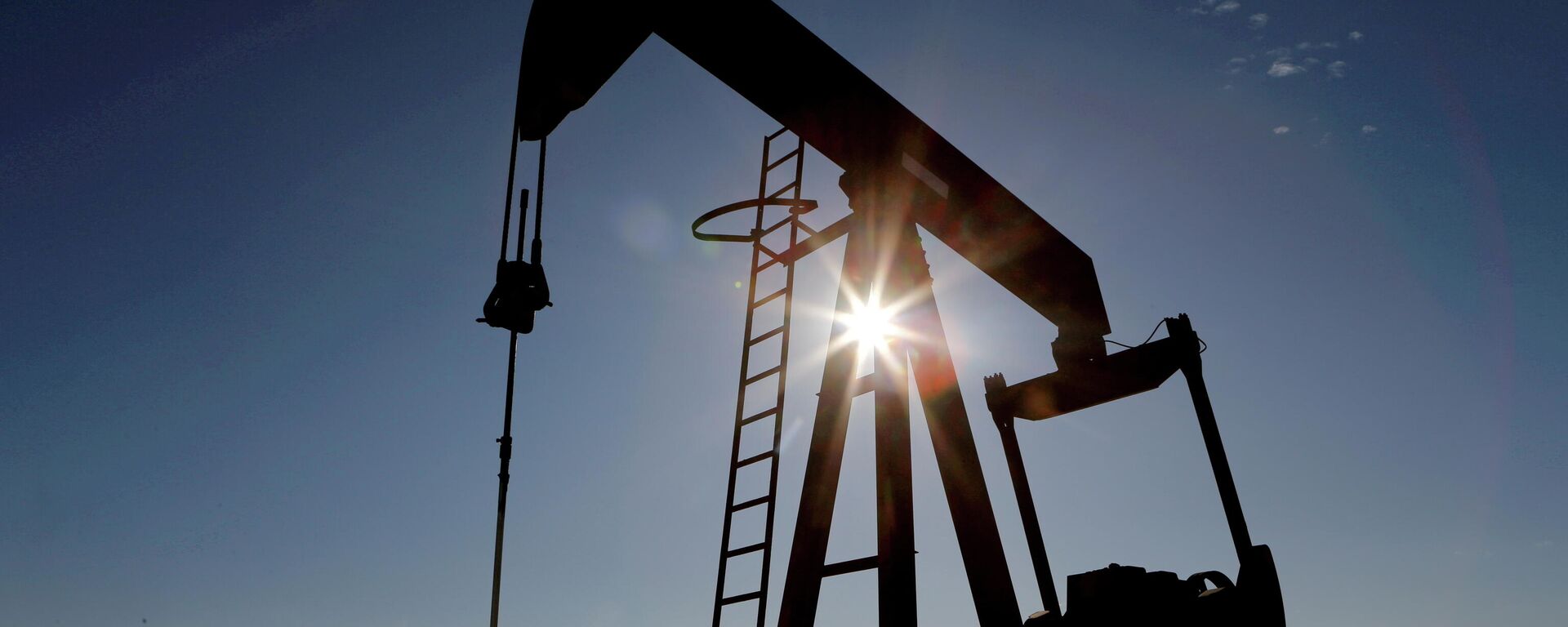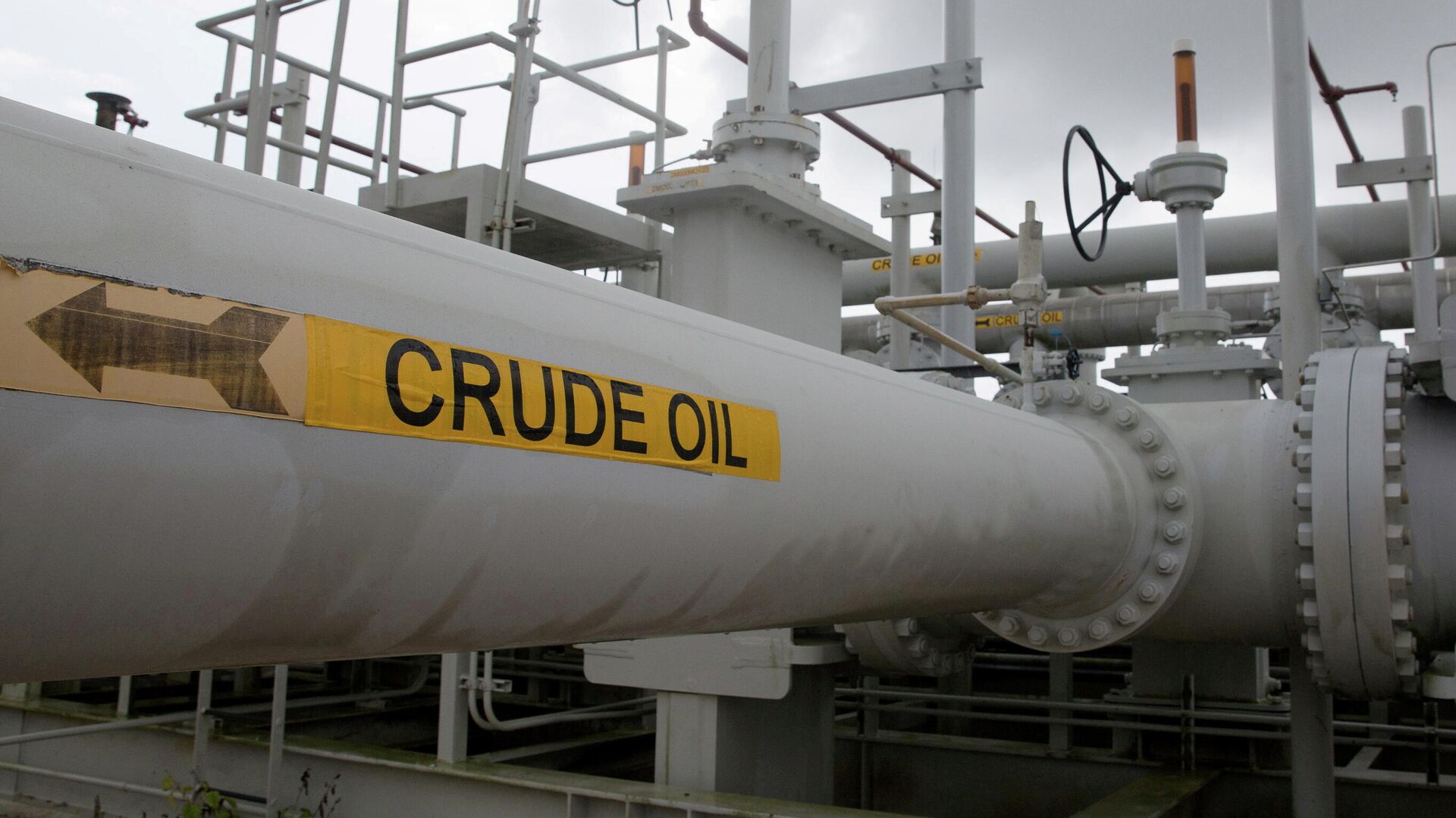https://sputnikglobe.com/20211125/us-crude-released-by-biden-from-reserves-will-likely-be-snapped-up-by-china-india-claim-traders-1091016109.html
US Crude Released by Biden From Reserves Will Likely Be Snapped Up By China, India, Claim Traders
US Crude Released by Biden From Reserves Will Likely Be Snapped Up By China, India, Claim Traders
Sputnik International
US President Joe Biden has announced the release of 50 million barrels of oil from the Strategic Petroleum Reserve (SPR) on 23 November in a concerted effort... 25.11.2021, Sputnik International
2021-11-25T13:05+0000
2021-11-25T13:05+0000
2022-07-19T10:40+0000
joe biden
gulf of mexico
us department of energy
us
china
oil
strategic petroleum reserve (spr)
opec
business
https://cdn1.img.sputnikglobe.com/img/07e5/0b/17/1090956996_0:257:2729:1792_1920x0_80_0_0_55a0bd5a03e0ecf5a68c46a700956bdf.jpg
A large portion of the oil released from the US Strategic Petroleum Reserve (SPR) in line with an announcement made by President Joe Biden on 23 November will likely end up being exported to China and India, claim traders cited by Bloomberg. Biden had made the decision to tap 50 million barrels of oil held in US reserves in an “effort to lower prices and address lack of supply around the world,” with 18 million of these already congressionally approved for sale after 17 December. The announced move is part of a coordinated effort with other leading energy-consuming nations, such as China, India, Japan, South Korea and the United Kingdom. These supplies will consist of sour crude - a type of oil containing a high amount of the impurity sulphur. Crude oil is defined as "sour" if its sulphur content exceeds 0.5%, while “sweet” crude is defined by the New York Mercantile Exchange (NYMEX) as petroleum with sulphur levels below 0.42%. The high sulphur content makes this oil more expensive to process, requiring additional refining that needs natural gas, which has doubled in price this year. Accordingly, US refiners are said to typically steer clear of it. Yet some foreign buyers find sour crude attractive due to the lower price as compared to the global Brent benchmark - the crude oil that serves as a reference price for buyers and sellers. US sour crude is currently trading at about $75 a barrel, while Brent costs about $82. The US sold oil from the SPR throughout the current year, with a record volume exported in October, says the outlet, adding that China and India have been purchasing sour crude produced in the Gulf of Mexico. According to the report, this explains why these two countries agreed to partake in the reserves release spearheaded by Washington. As it was announced that the US Department of Energy will release 50 million barrels of oil from the SPR, Biden emphasised the move would help tackle “lack of supply, which in turn helps ease prices." The oil market has been heavily impacted by the COVID-19 pandemic, with producers forced to cut oil production due to lack of demand. Gasoline prices in the US have spiked over the past year, averaging about $3.40 a gallon, more than double what it was a year ago, according to the American Automobile Association. This comes as the Biden administration’s policy to move away from fossil fuels and seek alternative sources of energy.The president acknowledged that the measures would not alter prices overnight, but "it will make a difference." Earlier this month, OPEC+ agreed to adhere to plans to raise oil output by 400,000 barrels per day from December, defying Biden's calls to significantly boost production.After Tuesday's announcement, oil prices surged. West Texas Intermediate crude climbed as much as 2.6% to $78.75 per barrel. Global benchmark Brent crude picked up 2.8% to $81.94. Some market analysts suggested it was an indication that the move announced by Biden wasn't the "game-changer"it could have been.
https://sputnikglobe.com/20211123/joe-manchin-us-oil-reserve-release-important-for-gas-prices-but-biden-must-boost-home-output-1090965668.html
https://sputnikglobe.com/20211107/us-looking-at-tools-to-make-fuel-more-affordable-as-opec-ignores-calls-to-boost-output---granholm-1090547823.html
gulf of mexico
china
Sputnik International
feedback@sputniknews.com
+74956456601
MIA „Rossiya Segodnya“
2021
News
en_EN
Sputnik International
feedback@sputniknews.com
+74956456601
MIA „Rossiya Segodnya“
Sputnik International
feedback@sputniknews.com
+74956456601
MIA „Rossiya Segodnya“
joe biden, gulf of mexico, us department of energy, us, china, oil, strategic petroleum reserve (spr), opec, business
joe biden, gulf of mexico, us department of energy, us, china, oil, strategic petroleum reserve (spr), opec, business
US Crude Released by Biden From Reserves Will Likely Be Snapped Up By China, India, Claim Traders
13:05 GMT 25.11.2021 (Updated: 10:40 GMT 19.07.2022) US President Joe Biden has announced the release of 50 million barrels of oil from the Strategic Petroleum Reserve (SPR) on 23 November in a concerted effort with other major energy-consuming nations, including China, India, Japan, South Korea and the UK to reign in surging prices.
A large portion of the
oil released from the US Strategic Petroleum Reserve (SPR) in line with an announcement made by President Joe Biden on 23 November will likely end up being exported to China and India, claim traders cited by Bloomberg.
Biden had made the decision to tap 50 million barrels of oil held in US reserves in an “effort to lower prices and address lack of supply around the world,” with 18 million of these already congressionally approved for sale after 17 December.

23 November 2021, 17:05 GMT
The announced move is part of a coordinated effort with other leading energy-consuming nations, such as China, India, Japan, South Korea and the United Kingdom. These supplies will consist of sour crude - a type of oil containing a high amount of the impurity sulphur.
Crude oil is defined as "sour" if its sulphur content exceeds 0.5%, while “sweet” crude is defined by the New York Mercantile Exchange (NYMEX) as petroleum with sulphur levels below 0.42%. The high sulphur content makes this oil more expensive to process, requiring additional refining that needs natural gas, which has doubled in price this year.
Accordingly, US refiners are said to typically steer clear of it. Yet some foreign buyers find sour crude attractive due to the lower price as compared to the global Brent benchmark - the crude oil that serves as a reference price for buyers and sellers. US sour crude is currently trading at about $75 a barrel, while Brent costs about $82.

7 November 2021, 15:16 GMT
The US sold oil from the SPR throughout the current year, with a record volume exported in October, says the outlet, adding that China and India have been purchasing sour crude produced in the Gulf of Mexico. According to the report, this explains why these two countries agreed to partake in the reserves release spearheaded by Washington.
As it was announced that the US Department of Energy will release 50 million barrels of oil from the SPR, Biden emphasised the move would help tackle “lack of supply, which in turn helps ease prices." The oil market has been heavily impacted by the
COVID-19 pandemic, with producers forced to cut oil production due to lack of demand.
Gasoline prices in the US have spiked over the past year, averaging about $3.40 a gallon, more than double what it was a year ago, according to the American Automobile Association.
This comes as the Biden administration’s policy to move away from fossil fuels and seek alternative sources of energy.
"The bottom line: today we're launching a major effort to moderate the price of oil, an effort that will span the globe in its reach and ultimately reach your corner gas station," said Biden on Tuesday.
The president
acknowledged that the measures would not alter prices overnight, but "it will make a difference." Earlier this month, OPEC+ agreed to adhere to plans to raise oil output by 400,000 barrels per day from December, defying Biden's calls to significantly boost production.
After Tuesday's announcement, oil prices surged. West Texas Intermediate crude climbed as much as 2.6% to $78.75 per barrel. Global benchmark Brent crude picked up 2.8% to $81.94. Some market analysts suggested it was an indication that the move announced by Biden wasn't the "game-changer"it could have been.



